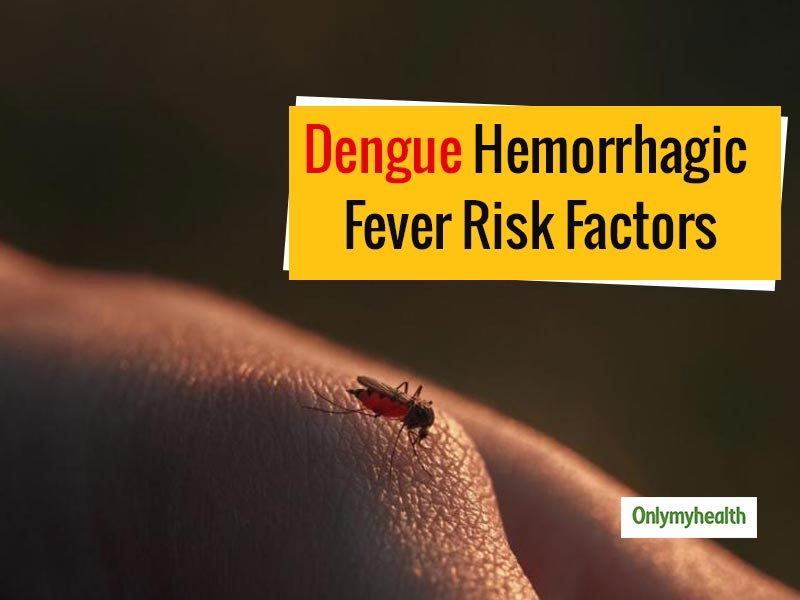
Dengue fever is viral illness which spreads by the bite of an infected mosquito. Some patients can develop dengue hemorrhagic fever a severe, often fatal complication of dengue infection. Read to know the risk factors for dengue hemorrhagic fever. In this season where the cases of dengue fever are rampant, there is a need to take care of basics to limit the breeding of mosquitoes in and around your house. Some symptoms of dengue hemorrhagic fever are:
Table of Content:-
- Bleeding under the skin leading to pain and extreme redness on skin
- Frequent episodes of vomiting
- Pain in abdomen
- Fever
- Excessive weakness
- Reduced appetite
There are several risk factors that can contribute to the dengue hemorrhagic fever. One has to take all necessary precautions to be safe from dengue. First and foremost, the surroundings should be kept clean and there should no buildup of garbage or water in the surrounding.

Also Read: The Causes Of Dengue Fever Explained By Dr Poonam Sachdev
Living or travelling to tropical areas
Living in areas where dengue infection is rampant (such as tropical Asia, Central and South America, and the Caribbean) increases your risk of getting dengue fever and dengue hemorrhagic fever. Also, in a season where there are more rains than usual, it is common to experience dengue-like symptoms. However, even basic cases of viral are often confused with dengue fever. Make sure to get yourself checked of all dengue parameters before jumping on any conclusion.
Prior infection with a dengue fever virus

There are four types of dengue virus (DENV-1 to DENV-4). One type of dengue virus can infect a person only once in his lifetime as the person develops lifelong protective immunity against that particular type of infecting virus (homotypic immunity). A second infection with any type of dengue virus (e.g. DEN-2 followed by DEN-3) can cause severe and even fatal dengue infection such as dengue hemorrhagic fever or dengue shock syndrome due to the presence of antibodies to the virus in your blood from a previous infection. In most infections, antibodies in the body from a previous infection usually help protect you. But in dengue fever it leads to damage of the blood vessels and platelets and actually increases your risk of dengue hemorrhagic fever.
Also Read: Know About Skeeter Syndrome: Allergic Reaction To Mosquito Bites
Other factors

Risk of DHF is higher in children younger than 12 years of age, females, and the Caucasian race. Higher density of Aedes mosquito, climate favouring mosquito breeding (hot and humid climate), and the presence of all the four serotypes of the dengue virus in a geographic area, poor sanitation and water pooling in and around households, population density and large movement of people towards urban areas also increase the risk of dengue fever and DHF.
Currently there is no specific treatment for dengue. Hence prevention is considered important in the control of dengue fever. Focus should be on prevention centres on avoiding mosquito bites and controlling and eliminating mosquito breeding sites.
Read more articles on Other Diseases
How we keep this article up to date:
We work with experts and keep a close eye on the latest in health and wellness. Whenever there is a new research or helpful information, we update our articles with accurate and useful advice.
Current Version